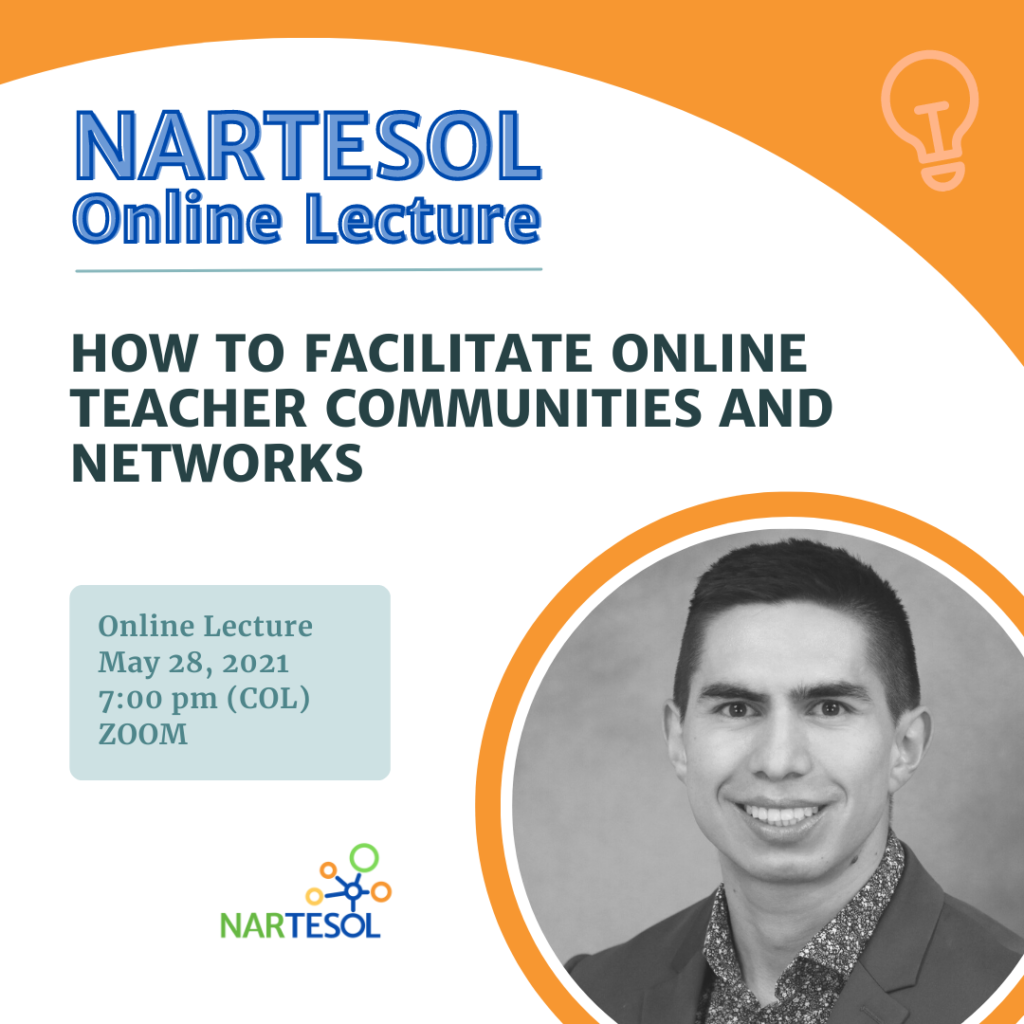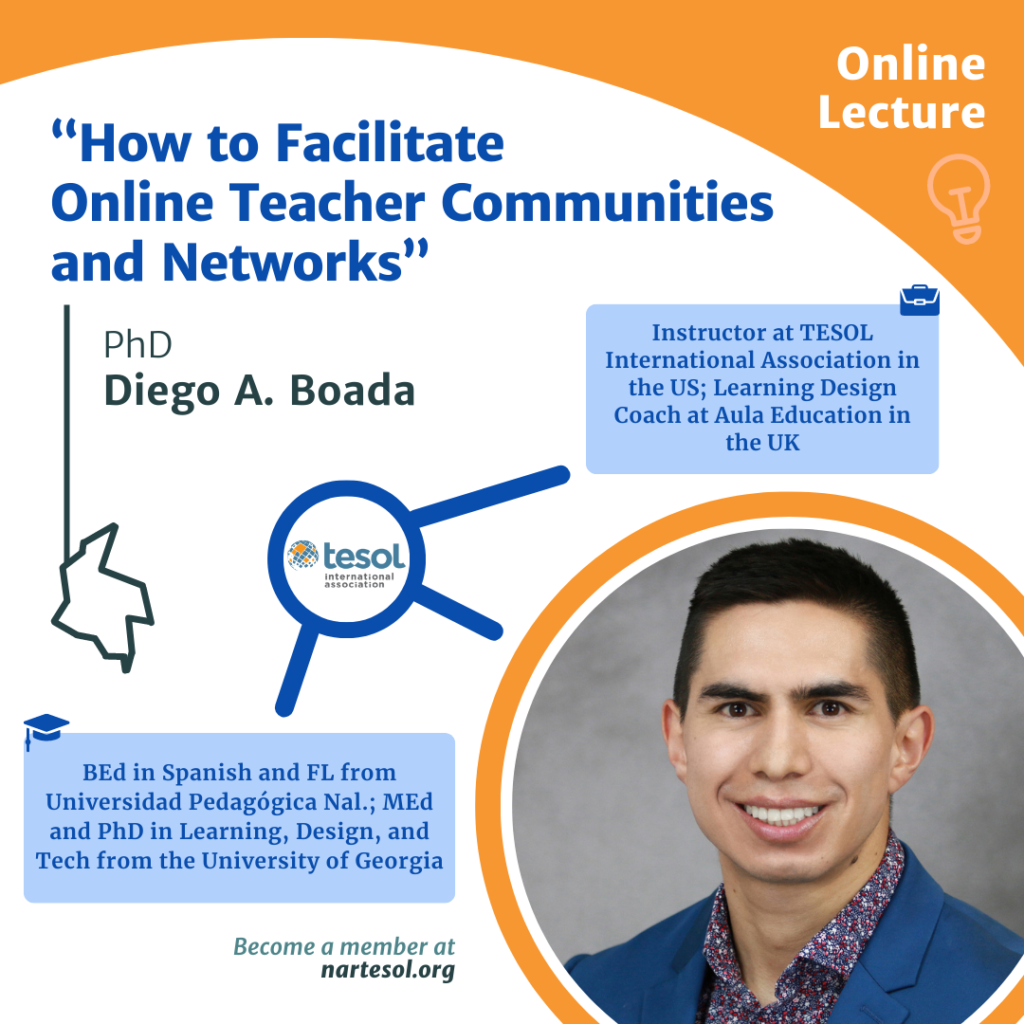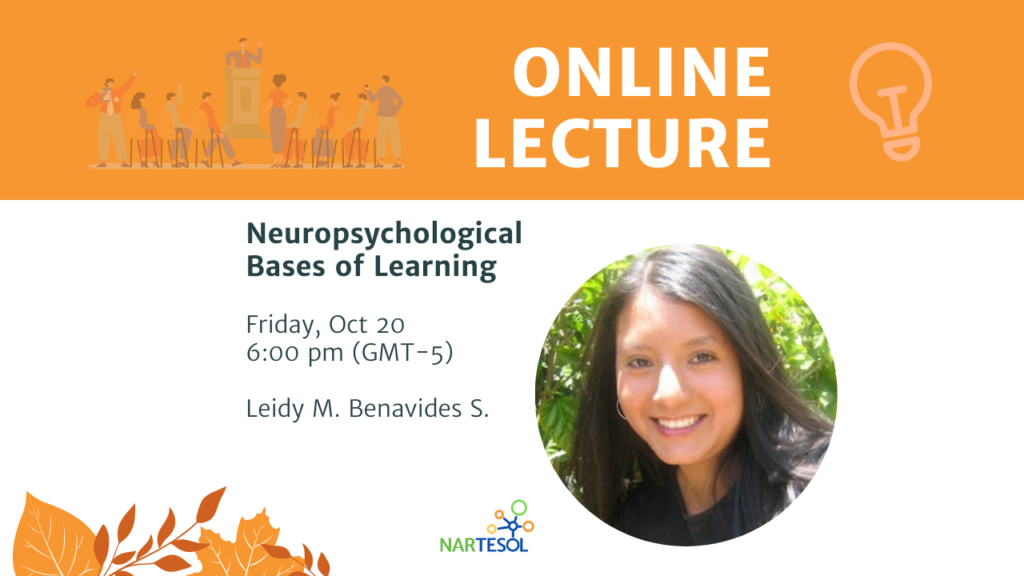Hello there and welcome to this Recap! Here you will find a summary of the event with video clips from its key moments. While navigating this post, you’ll also find the event’s official illustration, the full video (in case you didn’t have the chance to attend or if you want to watch it all over again), additional notes and links, material provided by the speaker (if any), and attendance certificates (if it applies). So, let’s recap our 1st event!
Watch the event’s full video (log in) ⬇️
To watch this event you need to log in 🔐. The good news is that registration to Nartesol is free-of-charge 🆓, so head to nartesol.org/jointhecommunity to register and be part of this community 💙.Read notes and access links related to the event
(log in to see material, contact) ⬇️
- 🎟️ Read about the speaker on Event Details Log in to access this content (remember that registration is free-of-charge)
- 📄 Attendance certificates do not apply for this event
- 🔍 Find the speaker’s research study A social network analysis of an online teacher community of practice: a mixed methods study
- ▶️ Find Diego Boada on his YouTube program A Cup of Coffee with TESOL Experts Log in to access this content (remember that registration is free-of-charge)
A network is not a Rosca
Event 1 took place online on May 28, 2021, and we launched the Nariño Tesol Network project with Dr. Diego Boada, who stole the screen to share his findings from a research on Communities of Practice (CoP). He started by highlighting the importance of networks over the “rosca” culture, a term used in Colombia to refer to nepotist behavior.
Community of Practice and Network
Then we learned about what a CoP is and how different it is from a network before getting to know the specifics of his research on online teacher CoPs. This work was his doctoral dissertation which you can access at the beginning of this post.
Social Network Analysis
His study was carried out through the Social Network Analysis (SNA) paradigm, which, in short, studies fenomena based on social structures instead of individual attributes. In this way, he brought up a lot of insight into how teachers perceive CoPs, such as their interest in being benefitted with instructional resources or their preference to being in a community with face-to-face interaction. You can find such results in the event’s full video.
Recommendations for a Community
Diego recommends that, in order to build up a community or network, we need to focus on making significant connections and create spaces for participation and information flow, but it is also important to facilitate collective trust and commitment by means of example and norms. This way we can grow as a community with a shared identity and collaborative behavior.
Positive Competition
After his presentation, some of the audience participated by making comments or questions and one of the topics that was brought up was how networking can be a great way to lessen negative competition behavior in our field.
Questions
Thank you for reading this recap, remember that you may watch the event’s full video at the beginning of this post, but you need to be logged in.
Questions for you: Have you been part of a CoP? Do you think it is important for teachers to be part of a CoP? Which benefits would draw your attention from a CoP? (feel free to answer in any language in the comment section below)



